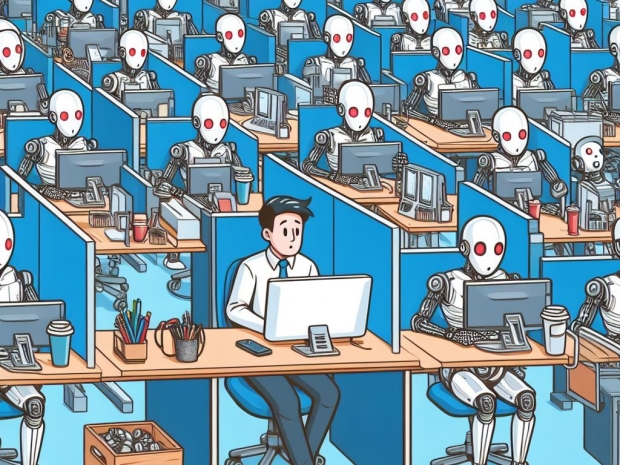In a new report, the IMF said that rich countries are most at risk from AI, urging quick action to stop growing inequality.
IMF boss Kristalina Georgieva said she is worried about the "scary trend", and told policymakers to deal with AI problems, to stop the tech from making social tensions worse.
"We are on the edge of a tech revolution that could boost productivity, grow the world economy, and raise incomes everywhere. But it could also kill jobs and make inequality worse," Georgieva said.
The IMF's study shows that high-skilled jobs, mostly in rich countries, are most likely to be hit by AI: about 60 per cent of jobs in these places are in danger.
While the IMF thinks AI could make work better for half of the hit jobs, key tasks could be taken over in the other half, leading to less work demand, fewer hires and possible job losses.
Rising markets, like Brazil, are expected to face less trouble, with about 40 per cent of jobs hit, while poor countries like Bangladesh are expected to see a 26 per cent impact. But the IMF notes that the lack of a skilled workforce in many of these countries makes it likely that inequality will get worse.
The IMF warns that AI could split income groups more. Those who can use its benefits may see higher productivity and pay, but those who can't may fall behind - especially low-income and older workers who are more likely to lose their jobs.
This comes after previous warnings by money firms. Goldman Sachs, for example, said that generative AI alone could hit up to 300 million jobs around the world.
While admitting the chance of job losses, Goldman Sachs also said the tech's ability to make work better, help the economy grow and increase GDP by as much as seven per cent.
With the world on the edge of a revolution, world leaders and policymakers face the challenge of balancing the good and bad of AI. The focus, says the IMF, must be on stopping the possible damage to jobs and inequality.

